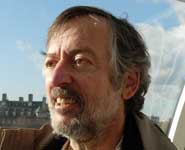Paul was born in Arkansas in 1945. He entered MIT in 1963, and spent the next 14 years in a mixture of full- and part-time education, military service (in Vietnam) and employment.
He started work at Cambridge Information Systems Laboratory, Massachusetts, in 1977. CISL was the main development and support element for Honeywell' s Multics system, and had very close links with MIT where Multics had been conceived and developed. At CISL Paul worked on the Fortran compiler.
Multics was a secure, interactive, high-availability, multi-user system whose software was almost completely written in PL/I. The quality of the concept and its software expression enabled Honeywell to sell systems to universities and research establishments, despite the high cost of the complex and unique hardware required (the other main market was defence, where price was presumably less of a problem). In 1979 Bristol and Bath universities pooled their government funding for replacement mainframes to buy a shared Multics system. Avon Universities Computer Centre (AUCC) was set up at Bristol by the two universities to run the new system, which was installed in the University's Computer Centre.
In 1979 Paul and Ann French met at a Multics conference in New Orleans. Paul decided to come to England, and started work at AUCC in April 1980. Whilst the days of operating system and compiler development by British universities were drawing to a close, the possibilities offered by computer networks had been recognised early by the university community, and a lot of effort was put into devising protocols, and implementing them on the wide variety of machines then in use. Paul worked on the Multics implementation of the Blue Book file transfer protocol and the Red Book job transfer protocol. He combined outstanding programming talent with a knowledge and insight of the Multics system and its use of PL/I, and was a major contributor to the integration of Multics into the existing regional South West Universities Computer Network, and later into the national JANET network.
Paul also worked on day-to-day support tasks, including tuning the system to extract the best performance for the enthusiastic but frustrated user population from the under-configured hardware. He took responsibility for the emerging bulletin board services that were to evolve into Usenet news. It was in this context that his human qualities, over and above his technical skills, came into play. Managing and mediating forums in which offence could easily be given and taken, without unduly restricting expression of opinion, was an art he excelled in and practised for many years.
When the Multics system was taken out of service Paul became responsible for configuring and managing the new routing equipment on the University's rapidly-expanding campus network, and later for its firewall. He ran the dial-up server, at a time when it offered the only reliable and affordable means of remote access to computing services. Any mistake he made would have had a major impact on many people's work, but he was not the sort of person who made mistakes.
Paul had an unprejudiced, though healthily sceptical, attitude to users. When they asked for something his response wasn't ‘Why?’ but ‘Why not?’. People would accept some unwelcome restriction or control imposed by him, because they knew he wouldn't do it if it wasn't necessary. He was also exceptionally good with the undergraduates, and was the fairy godmother of the student computer society BITS, persuading his colleagues to do things for them that they might well otherwise have refused.
Laconic, never using one word when none would do, he wrote fluently, concisely, and compellingly on a wide range of subjects. This was most often online, and a great deal of what he had to say on topics as diverse as hi-fi, politics, GPS, photography, Cisco router administration, stopping smoking, programming languages, and skiing is preserved in Google's Usenet archives. He is lucid, honest, erudite, funny, and fair, not laying down the law but asking for and giving information, opinions, and advice by interacting with other people.
Ann and Paul retired from the University together in 2004, and in the too-short time before his death managed to do a great deal more travelling, including another stage of their crossing the US from East to West on their bicycles (they had already done this from North to South along the Continental Divide, as well as Land's End to John o'Groats -- twice). Like everything he put his mind to, Paul took cycling seriously and was extraordinarily well informed about every aspect of it. He and Ann were members of the Bristol CTC, many of whose members came to his funeral, joining friends and former colleagues.
Bristol gave Paul a partner, an arena to display his technical and personal qualities, colleagues to work with, and friends to share the enjoyment of his many interests. But whatever Paul was given, he gave back more. We are all lucky to have known and worked with him.
Kit Powell
